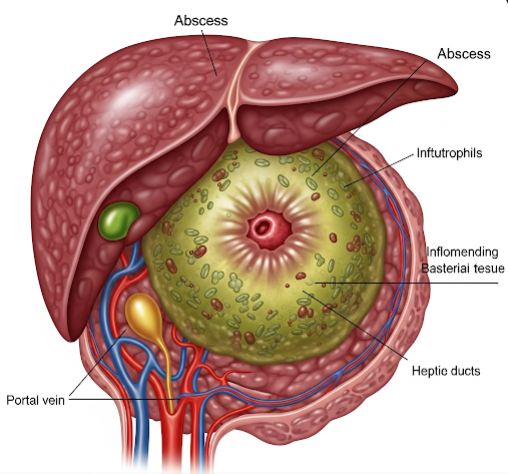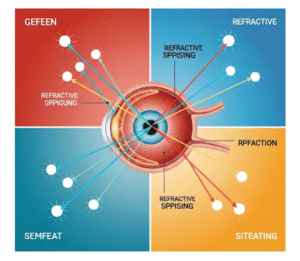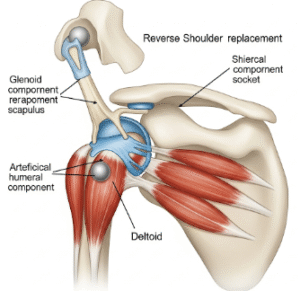Overview
A liver abscess is a pus-filled cavity in the liver caused by infection. It can result from bacterial, parasitic, or fungal infections. If untreated, liver abscesses can cause serious complications, but with timely diagnosis and treatment, recovery is usually good.
What Is Liver Abscess?
Liver abscess is an accumulation of pus within the liver tissue due to infection. The two main types are pyogenic (bacterial) abscess and amoebic abscess caused by Entamoeba histolytica. It presents with systemic infection symptoms and requires urgent medical care.
Symptoms
- Fever and chills
- Abdominal pain, especially in the right upper quadrant
- Nausea and vomiting
- Loss of appetite and weight loss
- Jaundice (yellowing of skin and eyes) in some cases
- Tenderness over the liver area
- General weakness and fatigue
Causes
- Bacterial infections spreading from the biliary tract, intestines, or bloodstream
- Amoebic infection from Entamoeba histolytica parasite
- Fungal infections in immunocompromised patients
- Trauma or surgery involving the liver
Risk Factors
- Diabetes mellitus
- Liver diseases such as cirrhosis
- Recent abdominal surgery or trauma
- Immunosuppression (HIV/AIDS, chemotherapy)
- Poor sanitation and hygiene (for amoebic abscess)
Complications
- Rupture of the abscess causing peritonitis or pleural infection
- Sepsis and systemic infection
- Spread of infection to other organs
- Liver failure in severe cases
Prevention
- Proper treatment of abdominal infections
- Good hygiene and sanitation to prevent parasitic infections
- Prompt medical attention for abdominal pain and fever
- Managing chronic illnesses like diabetes effectively
Treatment Options in Korea
Korea offers advanced and effective treatment for liver abscesses:
- Antibiotic Therapy: Broad-spectrum antibiotics targeting causative bacteria, adjusted based on culture results.
- Antiparasitic Treatment: Specific medications for amoebic abscess such as metronidazole.
- Drainage Procedures: Ultrasound or CT-guided percutaneous drainage to remove pus from the abscess.
- Surgical Intervention: Reserved for complicated or inaccessible abscesses.
- Supportive Care: Pain management, hydration, and monitoring of liver function.
- Advanced Diagnostics: Imaging techniques like ultrasound, CT scan, and MRI for precise localization and assessment.
Korea’s healthcare system ensures timely diagnosis and multidisciplinary care, leading to excellent outcomes for liver abscess patients.













